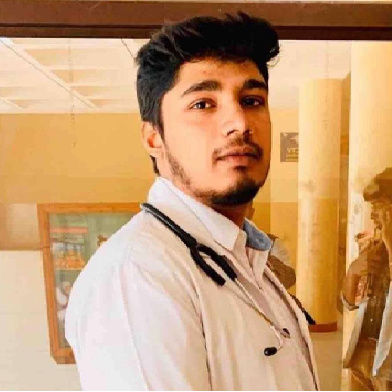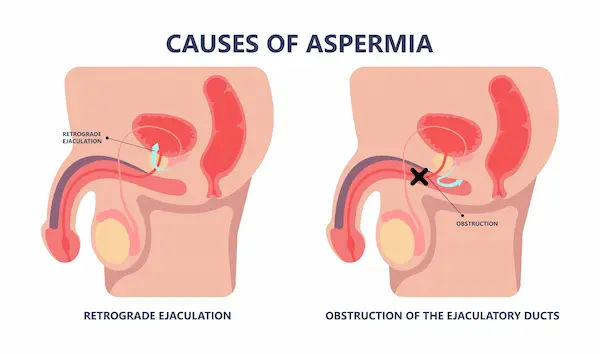Importance of Regular Pap Smears
Learn why regular Pap smears are essential for early detection of cervical cancer and maintaining women’s reproductive health. Stay informed and protected.

Written by Dr. J T Hema Pratima
Reviewed by Dr. Mohammed Kamran MBBS, FIDM
Last updated on 13th Jan, 2026

Introduction
Every woman deserves to live a healthy, worryfree life. One of the best ways to ensure this is by taking charge of your reproductive health through regular screenings like Pap smears. If you’ve been putting off this test or feel unsure about it, this article will explain why it’s so important in simple, compassionate terms.
What Is a Pap Smear?
A Pap smear (or Pap test) is a quick and painless procedure where a doctor collects cells from your cervix (the lower part of the uterus) to check for any abnormalities. The main goal is to detect early signs of cervical cancer or precancerous changes before they become serious.
Cervical cancer is one of the most preventable cancers, and regular Pap smears play a huge role in catching it early—when treatment is most effective.
Why Are Regular Pap Smears Important?
The regular pap smears important:
1. Early Detection Saves Lives
Cervical cancer develops slowly, often over years.
A Pap smear can detect abnormal cells before they turn into cancer, allowing for early treatment.
2. HPV Connection
Most cervical cancers are caused by the human papillomavirus (HPV), a common sexually transmitted infection.
A Pap smear can identify HPVrelated changes in cervical cells.
3. Peace of Mind
Regular screenings mean fewer surprises. If everything is normal, you can relax. If there’s an issue, early action makes a big difference.
Consult Top Specialists for Personalised Tips
Who Needs a Pap Smear and How Often?
Pap smear could be done by:
When to Start:
Women should begin Pap smears at age 21, regardless of sexual activity.
Screening Frequency:
Ages 21–29: Every 3 years (if results are normal).
Ages 30–65: Every 3 years (Pap smear alone) OR every 5 years (if combined with an HPV test).
After 65: You may stop if previous tests were normal and you’re not at high risk.
Who Needs More Frequent Tests?
Women with a history of abnormal Pap results.
Those with a weakened immune system (e.g., HIV).
Women exposed to DES (diethylstilbestrol) before birth.
What Happens During a Pap Smear?
The things that happen during a pap smear are:
1. You’ll lie on an exam table, and the doctor will gently insert a speculum to widen the vagina.
2. A small brush or spatula collects cells from the cervix (takes just a few seconds).
3. The sample is sent to a lab for analysis.
Does it hurt? Some women feel slight discomfort, but it’s usually quick and painless.
Understanding Your Results
Normal (Negative): No abnormal cells found—just continue routine screenings.
Abnormal (Positive): Doesn’t always mean cancer! It could be due to:
HPV infection
Precancerous changes (dysplasia)
Inflammation or infection
Your doctor may recommend:
Repeat Pap smear in a few months.
HPV testing (if not already done).
Colposcopy (a closer look at the cervix).
How to Prepare for a Pap Smear?
To get the most accurate results:
Avoid sex, douching, or vaginal creams for 48 hours before the test.
Schedule the test when you’re not menstruating.
Relax—it’s a routine procedure, and your doctor is there to help!
Lifestyle Tips for Cervical Health
While Pap smears are crucial, you can also lower your risk of cervical cancer by:
Getting the HPV vaccine (recommended for ages 9–26, and up to 45 in some cases).
Practicing safe sex (using condoms reduces HPV risk).
Quitting smoking (smoking weakens immunity against HPV).
Eating a balanced diet (foods rich in folate, vitamin C, and antioxidants support immunity).
Don’t Delay—Book Your Pap Smear Today!
If you’ve been avoiding this test due to fear or inconvenience, remember: a few minutes of discomfort can prevent years of worry.
At Apollo 24|7, you can easily schedule a Pap smear or consult a gynecologist from the comfort of your home. Early detection is the best protection—take that step today!
Your health matters. A simple test today can ensure a healthier tomorrow.
Would you like to book a Pap smear or speak to a doctor? Visit Apollo 24|7 now!
Consult Top Specialists
Consult Top Specialists for Personalised Tips

Dr. Hariprasath J
General Physician/ Internal Medicine Specialist
19 Years • MD (Gen Med), FCCP, Dip (Diabetology, UK)
Chennai
Apollo First Med Hospitals P H Road, Chennai
(225+ Patients)

Dr. Soumen Paul
General Physician/ Internal Medicine Specialist
24 Years • MBBS
Kolkata
MCR SUPER SPECIALITY POLY CLINIC & PATHOLOGY, Kolkata
(50+ Patients)

Dr. Khuda Baksh Nagur
General Physician/ Internal Medicine Specialist
11 Years • MBBS, MD (GENERAL MEDICINE), Certificate Programme clinicians in Diabetes Management
Bengaluru
Medwin multispeciality clinic, Bengaluru
(25+ Patients)
Dr. Kanupriya Mishra
General Physician
30 Years • MBBS(GENERAL PHYSICIAN)
Bengaluru
Apollo Clinic, Sarjapur Road, Bengaluru

Dr. Zulkarnain
General Physician/ Internal Medicine Specialist
8 Years • MBBS, Fellowship in Family Medicine
Bengaluru
Apollo Clinic, Indiranagar, Bengaluru
(25+ Patients)
Consult Top Specialists

Dr. Hariprasath J
General Physician/ Internal Medicine Specialist
19 Years • MD (Gen Med), FCCP, Dip (Diabetology, UK)
Chennai
Apollo First Med Hospitals P H Road, Chennai
(225+ Patients)

Dr. Soumen Paul
General Physician/ Internal Medicine Specialist
24 Years • MBBS
Kolkata
MCR SUPER SPECIALITY POLY CLINIC & PATHOLOGY, Kolkata
(50+ Patients)

Dr. Khuda Baksh Nagur
General Physician/ Internal Medicine Specialist
11 Years • MBBS, MD (GENERAL MEDICINE), Certificate Programme clinicians in Diabetes Management
Bengaluru
Medwin multispeciality clinic, Bengaluru
(25+ Patients)
Dr. Kanupriya Mishra
General Physician
30 Years • MBBS(GENERAL PHYSICIAN)
Bengaluru
Apollo Clinic, Sarjapur Road, Bengaluru

Dr. Zulkarnain
General Physician/ Internal Medicine Specialist
8 Years • MBBS, Fellowship in Family Medicine
Bengaluru
Apollo Clinic, Indiranagar, Bengaluru
(25+ Patients)




.webp)